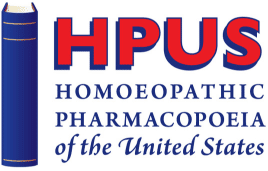White Papers set 1 Introduction
One of the most important challenges facing homeopathy is the issue of Quality manufacturing. Just as the clinical practice of homeopathy differs from that of conventional medical practice, the same is true for important aspects of producing homeopathic medicines.
What is a White Paper?
“A white paper is an authoritative report or guide that often addresses issues and how to solve them. The term originated when government papers were coded by color to indicate distribution, with white designated for public access. Thus, white papers are used in politics and business, as well as in technical fields, to educate readers and help people make decisions.” (https://law.stanford.edu/wp-content/uploads/2015/04/Definitions-of-White-Papers-Briefing-Books-Memos-2.pdf)
What does this set of HPCUS White Papers deal with?
While many quality procedures for homeopathic drug products overlap very closely with those of conventional medicines, there are also other important differences, or “gaps.” Some of those gaps (such as those related to the infinitesimally small quantities of active substances in the medicines) are impossible to reconcile with currently available technologies.
The inherent safety of all drugs is intimately linked to the “quality” of their manufacture. The HPUS sets standards for Drug Monographs (including for identity, purity, strength, and safety) and proposes guidance for their manufacture. The White Papers address gaps between the HPUS’s guidance and those the FDA deems necessary for making conventional pharmaceutical agents.
The HPCUS White Paper Development Process
The following is an overview of our White Paper Development Process. Our goal is to produce science-based solutions to gaps that were identified by stakeholders with interests in the homeopathic manufacturing process. Our process has been driven by scientific subject matter expertise within a frame of inclusivity, transparency, and consensus.
Identification of Stakeholder Concerns
The Homoeopathic Pharmacopoeia Convention of the United States (HPCUS) began the White Paper’s development in February 2020. HPCUS had received input from stakeholders concerning the FDA’s use of their own CGMP regulations (Current Good Manufacturing Practices) which may not be appropriate or even technically possible for homeopathic drug products (HDPs). The HPCUS Board of Directors reviewed the issues identified and discussed potential solutions. The Board then formed a White Paper Steering Committee that selected three areas considered of the highest importance to stakeholder concerns where no solution to the identified issue exists.
Selection of Experts
The HPCUS was determined to create openness in the project, foster a lack of dominance, and minimize bias. Once the issues were identified, a project leader from within HPCUS was selected, and a team of experts was assembled. The HPCUS Board directed the Project leader to include HPCUS internal experts and external consultants with specific subject matter expertise in applying regulatory requirements for allopathic drug manufacture. To diminish potential internal bias within the external panel, some experts were selected because they had little or no working knowledge of homeopathic drug manufacturing. The final panel was composed of three external subject matter experts, two HPCUS-affiliated homeopathic physicians, three members of the HPCUS with manufacturing and regulatory expertise, and legal counsel with expertise in U.S. pharmaceutical regulation.
Work Practices
Initial drafts were composed by the Principal Investigator for each paper, which were then reviewed by the expert panel. Using a consensus-based approach, each of the papers required at least six rounds of discussion and revisions before an initial draft was robust enough to send to the HPCUS Council on Pharmacy (COP) for an internal review. The Council on Pharmacy generates standards for Homeopathic CGMP as Guidelines for Manufacturing Homeopathic Medicines within the Homeopathic Pharmacopeia of the United States (HPUS). Like all committees within the HPCUS, the COP operates through a consensus-based process whenever possible, resorting to majority decisions only when necessary. Throughout this White Paper project, all COP decisions were based on consensus.
At multiple stages in the process, the White Papers were evaluated for potential impact on various stakeholders, including domestic and foreign manufacturers, importers of homeopathic products, consumers, and medical professionals. Upon completion of the COP review, the edited draft and any unresolved questions were returned to the expert panel for resolution. A final draft of each of the three proposed White Papers was completed in January 2024, when the HPCUS Board reviewed them. Following this final review for content and any possible impact or implementation concerns, the final drafts of these papers were approved for distribution and public comment.
Public Comment process
Each White Paper has been sent, now for a second round of review and comment, to over six hundred stakeholders including manufacturers, physicians, regulatory authorities, and members of the public. All comments received will be returned to the Expert Panel for review and consideration. Final drafts of the White Papers will be produced after reviewing comments received.
Through this very deliberative process, the HPCUS has generated well-reasoned, science-based, and pragmatic solutions to some of the clear issues created by CGMPs which are principally aimed at allopathic drug manufacturers. Implementation of the recommendations contained in these papers will make significant progress in our efforts to promote the quality and safety of homeopathic drug products for consumers.
The Future of the HPCUS White Paper Project
We expect to receive comments from the FDA, from manufacturers, and other parties. We will consider and reply appropriately to those comments. A final version will then be developed and reviewed by the HPCUS Board of Directors. Once approved (which might require further revision), we intend to present them to the FDA, to which Congress has granted regulatory authority. We are confident in the GMPs that are contained in the White Papers and hopeful that they will be well-received. The nature of their reception will determine the next steps.
We will continue to keep you updated.
For non-technical summaries of the three White Papers in this set, click here.
The White Papers themselves are available for your review and, if you wish, for comment at www.hpus.com/public-comment.
